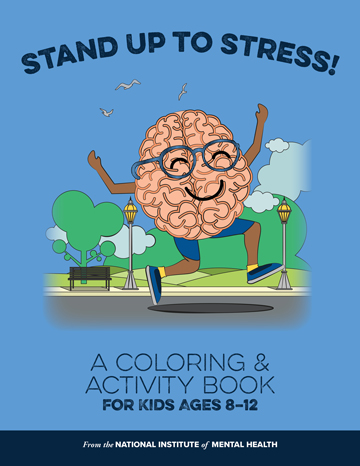 Fear of going to school was first called “school phobia” in 1941 (Johnson et al.,1941). Today it is known as school refusal or school avoidance, defined as: when a child does not fully attend school and has no reasonable or justifiable circumstances for the absence. This absence can be child or parent-motivated, e.g., requiring the child to stay home to babysit younger siblings or care for an elderly grandparent. It is estimated that between 2 to 5 percent of all school-aged children have school avoidance.
Fear of going to school was first called “school phobia” in 1941 (Johnson et al.,1941). Today it is known as school refusal or school avoidance, defined as: when a child does not fully attend school and has no reasonable or justifiable circumstances for the absence. This absence can be child or parent-motivated, e.g., requiring the child to stay home to babysit younger siblings or care for an elderly grandparent. It is estimated that between 2 to 5 percent of all school-aged children have school avoidance.
Chronic vs. Acute
Chronic school avoiders have long histories of non-attendance, sometimes spanning back to inconsistencies when they first started school.
Acute school avoidance is typically tied to a distinct and sudden period of school non-attendance. Quite frequently, it occurs after a period of justifiable non-attendance—for example, a prolonged illness.
Main Reasons for School Refusal
There are four general reasons why kids refuse to attend school they include:
- Avoidance. This includes kids suffering from separation anxiety, experiencing specific school phobias, and dealing with general anxiety.
- Social situations. In general, tweens avoid school because of some uncomfortable experiences they have had there, including bullying, kids suffering from social anxiety, kids who have had negative experiences with peers, teachers, or other school personnel.
- Reinforcement. These kids are somehow being reinforced to stay home. Gaming is a common reason kids refuse to go to school, tv/streaming, time with friends, social networking, home represents a stress-free environment, kids who got used to COVID cocooning.
- Attention from a caregiver. For example, a child with siblings gets more focused attention when home. Another child may be encouraged to stay home to help their caregiver.
Prevention Protocols
The first step, of course, is to alert your tween’s school that there is a problem. Ask them to partner with you to create a successful back-to-school plan.
Ask them to identify a “point person.” This person’s role is to hold the process by ensuring everyone involved is following through with their part.
Plans should be progressive regardless of your tween’s performance.
If your tween is ultimately unsuccessful throughout the plan, it will be time to regroup and discuss alternative plans, including alternative school placements if available.
Consistency, Consequences, and Reinforcement Are the Keys to Success
You must include your tween in the development for a plan to be successful. The plan must be consistent. In addition, your tween must be aware from the get-go what the consequences will be for them if they cannot follow through on the plan.
Celebrate the little successes. Reinforcers, aka in-school rewards, should be crucial for their plan. These incentives must be in school. This will help make school a comfortable and desirable place for your tween.
In addition to in-school counseling that may be provided, it is essential to seek the help of an outside mental health provider who can help your tween work through their anxieties and work with them to develop the skills necessary to attend school successfully.
Excerpted from “School Avoidance: My Tween Won’t Go to School” in Psychology Today. Read the full article online.
Source: Psychology Today | School Avoidance: My Tween Won’t Go to School, https://www.psychologytoday.com/us/blog/lets-talk-tween/202203/school-avoidance-my-tween-won-t-go-school | © 2022 Sussex Publishers, LLC.
If you have concerns about your child or teen, CHC Care Coordinators can arrange a free 30-minute consultation so you can explore options with an expert. We invite you to call or email us at 650.688.3625 or careteam@chconline.org to set up an initial Parent Consultation appointment. CHC teletherapy services are available now.
This resource is filed under:





